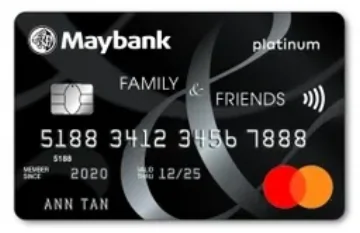What Is a Hostel?
Updated: 25 Jul 2025
Written bySingSaver Team
Team
The information on this page is for educational and informational purposes only and should not be considered financial or investment advice. While we review and compare financial products to help you find the best options, we do not provide personalised recommendations or investment advisory services. Always do your own research or consult a licensed financial professional before making any financial decisions.
Remember a time when hostels were just bare-bones dormitories for backpackers on a shoestring budget? It’s a different picture now as hostels have evolved into vibrant social hubs that offer travellers an affordable and authentic way to explore the world.
With more young professionals embracing solo travel and seeking meaningful cultural experiences, hostels have become a more popular accommodation type, from the historic streets of Europe to the bustling markets of Southeast Asia and the scenic coasts of Australia.
These modern hostels combine comfort with community, offering travellers not just a place to rest their heads, but also a chance to connect with fellow adventurers from around the globe.
What is a hostel?
A hostel is a budget-friendly, short-term shared accommodation option particularly popular among backpackers and solo travellers looking to stretch their travel budget. Unlike hotels, which typically offer private rooms, most hostels feature dormitory-style rooms, where guests sleep in bunk beds and share a room with others.
They also commonly provide shared bathroom facilities and communal common areas such as lounges, kitchens, and sometimes laundry rooms, fostering a social atmosphere. If you’re travelling to Japan, Korea, or Europe, consider hostels as a way to stretch your travel budget.
Hostels are very different from hotels in that they emphasise communal spaces and encourage interaction among guests. While hotels prioritise individual privacy and often offer a wider range of services, hostels focus on affordability and social interaction. However, variations exist within the hostel category itself. Youth hostels often cater to younger travellers and may have age restrictions or specific rules, while boutique hostels offer a more stylish and sometimes slightly more upscale shared accommodation experience with unique design elements and amenities, blurring the lines somewhat with budget hotels.
Don’t leave money on the table when you’re spending overseas
Travel reward credit cards have features that open doors to adventure and savings.
Unlike hotels which provide private rooms and ensuite bathrooms, hostels feature dormitory-style rooms with bunk beds, shared bathrooms, and common spaces like lounges and kitchens. They come in various forms — from basic backpacker hostels to trendy "poshtels" (boutique hostels with upgraded amenities), and youth hostels specifically catering to younger travellers.
>> Learn more about the 24 Travel Tips that Every Solo Traveller Should Know
How do hostels work?
Hostels operate on a model centered around shared spaces and budget-conscious travel. Upon check-in, guests are typically assigned a bed in a shared dormitory. These dormitories can range in size, accommodating anywhere from 4 to 20 or more people, often in bunk beds. For security, individual lockers are usually provided in the dorm rooms, though guests often need to bring their own padlock. Hostels usually have a communal kitchen, equipped with basic appliances like refrigerators, microwaves, and stovetops, allowing guests to prepare their own meals and save money on dining out. Common lounges serve as social hubs, providing spaces to relax, interact with other travellers, plan activities, and often feature amenities like sofas, games, and sometimes even televisions.
Hostels often operate on a self-service basis. While bedding is usually provided, guests may need to bring their own towel or rent one for a small fee. Similarly, you're generally responsible for cleaning up after yourself in the kitchen and common areas. However, some modern hostels are evolving and now offer the option of private rooms with en-suite bathrooms for travellers seeking more privacy, though these are typically priced higher.
A significant aspect of hostels is their unique “hostel culture”, which is generally social, informal, and budget-conscious. It's an environment that encourages interaction between travellers from diverse backgrounds, fostering a sense of community and often leading to shared travel experiences.
Dormitories are often segregated by gender (mixed-gender vs. female-only dorms), and hostels usually have policies about noise levels and curfews. Hostel experiences vary significantly by region. For instance, hostels in Southeast Asia tend to have a more laid-back and highly social atmosphere, often with communal events and bar areas, while hostels in Japan may have stricter rules regarding quiet hours and cleanliness, reflecting the local culture.
>> Learn more about the Best Insurance Plans for Backpackers
Reasons to book a hostel
Before you dismiss hostels as just bare-bones budget accommodation, consider these compelling reasons why travellers choose to stay in them.
You save money
The main reason why you’d want to consider a hostel is to save money. Hostels cost a lot less than hotels. Even if you opt for a private room in a hostel, the price can still be more affordable than a standard hotel room.
Here are some comparisons for popular cities like Bangkok, Melbourne, and Berlin:
|
City |
Hostel |
Hotel |
|
Berlin |
SGD 33 - 74 |
SGD 126 - 248 |
|
Melbourne |
SGD 54 - 89 |
SGD 90 - 252 |
|
Bangkok |
SGD 14 - 38 |
SGD 54 - 78 |
You meet other like-minded individuals
Hostels are more than just a bed for the night. They're melting pots of travel stories and aspirations. The social atmosphere at hostels means communal lounges are buzzing with conversations between travellers from different countries.
Many hostels actively cultivate this social side by organising events like walking tours, group dinners showcasing local cuisine, and lively pub crawls, providing organic opportunities to connect with fellow travellers.
The bonds formed in hostels can become more than fleeting encounters and develop into lasting friendships. For solo Singaporean travellers exploring unfamiliar lands, hostels offer an invaluable sense of community and belonging in a foreign country.
You’re close to happening areas
Unlike some value-for-money hotels that can be situated in more secluded areas, hostels tend to be located in central locations. They offer easy access to a city's key transport areas, major tourist attractions, and vibrant nightlife hubs. For Singaporeans travelling to cities like Tokyo, London, or Seoul, where taxi fares can be expensive, hostels can help save on travelling time and cost.
>> Learn more about the 20 Best Travel Hacks to Save Money
Reasons not to book hostels
While hostels offer many perks, they aren't for everyone. Consider these potential downsides before booking your stay.
Lack of privacy
One of the main drawbacks of staying in a hostel is the lack of privacy. Dormitories often feature shared rooms with multiple beds, and bathrooms are typically communal, which means you'll be surrounded by other people. For light sleepers, you might be disturbed by the noise or snoring from fellow guests. If you’re an introvert, you might also find the constant social interaction overwhelming.
If privacy is a top priority for you, consider booking a private room within a hostel, or look for accommodations that offer curtains or pod-style sleeping arrangements so you have some personal space.
Noise concerns
The social atmosphere that makes hostels so appealing can also be a source of noise. Whether it's loud conversations in common areas, late-night parties, or the sound of people coming and going at all hours, shared accommodations can be noisy. Hostels don’t really invest in sound insulation, so the thin walls means you might be easily disturbed if you’re a light sleeper.
If you’re particular about noise, consider packing earplugs or researching hostels that are known for being quieter or have designated "quiet hours." Reading reviews can also help you identify family-friendly hostels or those that cater to a more relaxed crowd.
Possible theft
The reality of shared spaces and a busy environment means the possibility of theft. To mitigate this risk in a hostel, it's highly recommended to secure all your valuable belongings in the provided lockers using your own padlock.
Adopt a proactive approach to security when travelling. Consider locking your bags, regardless of your accommodation.
>> Learn more about the Best Insurance Plans for Backpackers
How do you book a hostel?
Booking a hostel is typically a straightforward process done online. Numerous websites specialise in hostel reservations, such as Hostelworld, Booking.com, and Hostelbookers. These platforms allow you to filter your search based on several key criteria to find the best fit for your needs.
You can narrow down your options by price, allowing you to stay within your budget. Make it a point to read reviews from previous travelers as they provide insights into the hostel's atmosphere, cleanliness, staff, and overall experience. You can filter hostels by location to make sure you find hostels close to public transport, specific attractions you want to visit, or the city centre. You can also filter by amenities, such as free Wi-Fi, included breakfast, laundry facilities, common areas, and security features like lockers.
Hostelworld
Hostelworld is a leading platform specialising in hostel booking. The website offers a comprehensive range of filters to help you zoom in on the ideal hostel, allowing you to sort by price, location, amenities, and user reviews. Hostelworld employs a unique "Hostel Score" system, which aggregates user reviews across various categories like atmosphere, cleanliness, security, and staff, providing a quick overall rating to gauge the quality of a hostel.
The platform accepts Singaporean credit cards and other common online payment methods.
Booking.com
What people might not know is that hotel booking site Booking.com also lists a wide selection of hostels. You can compare hotel and hostel options side-by-side in terms of price, location, and amenities within a single search. Booking.com often features listings with a "Free Cancellation" option. This can be beneficial if you have an uncertain itinerary.
So, what’s a hostel?
In essence, a hostel is more than just a low-cost bed for the night. It can provide a distinct travel experience that blends affordability with social interaction. Hostels offer shared dorms, communal spaces, and a vibrant culture. Booking a hostel is an economical way to explore the world, and this might appeal to younger, adventurous, and budget-conscious Singaporeans looking to maximise their travel funds and connect with fellow explorers. But do take note that the communal nature also comes with potential drawbacks like limited privacy and noise.
Ultimately, the decision to book a hostel involves weighing these pros and cons against your individual travel style and priorities, so do thorough research based on your specific needs and preferences to ensure you have a comfortable trip.
How to maximise your rewards
There are some credit cards you can use overseas to maximise your rewards.
Maybank Family & Friends Card: High cashback on overseas spending

Maybank Family & Friends Card
DBS Altitude American Express Card: For overseas spending
HSBC TravelOne Card: Higher mpd on overseas spend
Relevant articles
What Does it Cost to Be a Singaporean Digital Nomad?
About the author
SingSaver Team
At SingSaver, we make personal finance accessible with easy to understand personal finance reads, tools and money hacks that simplify all of life’s financial decisions for you.


